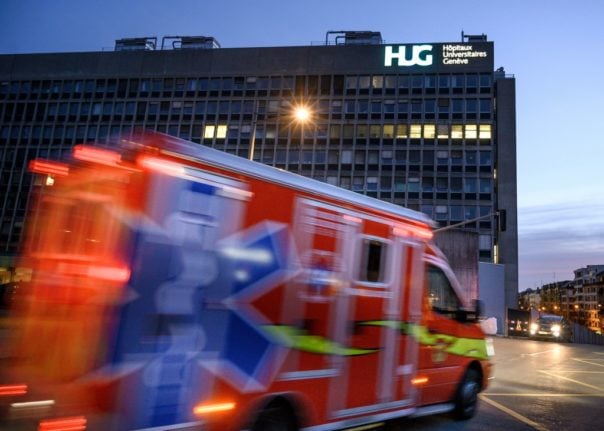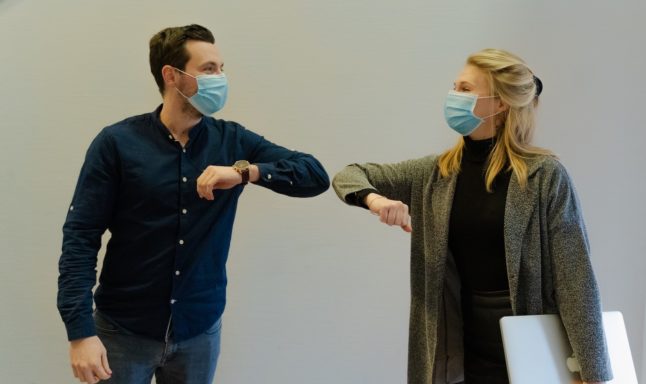Intensive care units (ICUs), where the most serious coronavirus cases are treated, have fewer beds than other hospital services, so they can become overcrowded quickly.
At the end of October and beginning of November, ICUs in the French-speaking cantons, which were most affected by the pandemic, reached their limits and, in some cases, exceeded their capacities.
Several Covid-19 patients were even transferred to hospitals in Bern and Zurich, as Swiss-German regions did not have as many infections and their medical centres had free beds.
Now, however, the trend of contaminations has shifted, with Swiss-German cantons, along with Ticino, becoming the new coronavirus hotspots.
READ MORE: EXPLAINED: Why are Covid-19 infections on the rise again in Switzerland?
While hospitalisations across the country still remain high, latest figures from the Federal Office of Public Health (FOPH) show that the situation is slightly better now than in previous weeks.
For instance, on November 2nd, the rate was 3.39 hospitalisations per 100,000 inhabitants, while on December 12th the rate dipped below 1, at 0.94 cases per 100,000.

However, the number of patients remains high and health authorities are expecting a new surge after the Christmas season.
Even though new rules regarding the number of people allowed to gather together have been set — up to five from two households before and after the holidays, and up to 10 from December 24th to 26th and on December 31st — health officials are worried that bigger groups will congregate, causing another spike in the number of infections.
In fact, heads of all five university hospitals in Switzerland — in Basel, Bern, Zurich, Lausanne and Geneva— sent a letter to Health Minister Alain Berset to express “their great concern about the current situation”, Swiss media reported.
“The pressure on hospitals remains high”, said the letter from the five hospitals.
“We will not be able to handle more cases. With the fatigue of our employees, we risk a collapse of the hospital system”, said Philippe Eckert, director of Vaud’s university hospital (CHUV), where 240 beds are occupied by patients with Covid-related illnesses.
At Geneva’s hospital (HUG), there are 188 patients with ‘active’ coronavirus and 269 with post-Covid complications.
Additionally, 10 to 20 people infected with Covid are admitted to HUG each day, said Sandra Merkli HUG’s director of care services.
Medical chefs are urging the government to declare ‘a state of emergency’ to maintain the healthcare system, which would mean the shutdown of all non-essential businesses in the same way as in the spring.
They said this would be the only way to prevent the ‘third wave’ from hitting Switzerland in January and causing hospitals to exceed their capacities.
“We are walking a tightrope. If we make more capacity available to Covid patients, other patients will suffer. We cannot favour just one disease ”, according to Huldrych Günthard, professor of infectious diseases at the University Hospital Zurich.
The federal government said last week it has no plans for the moment to mandate a national shutdown, but would introduce stricter measures if the number of cases goes up during Christmas.



 Please whitelist us to continue reading.
Please whitelist us to continue reading.
Member comments